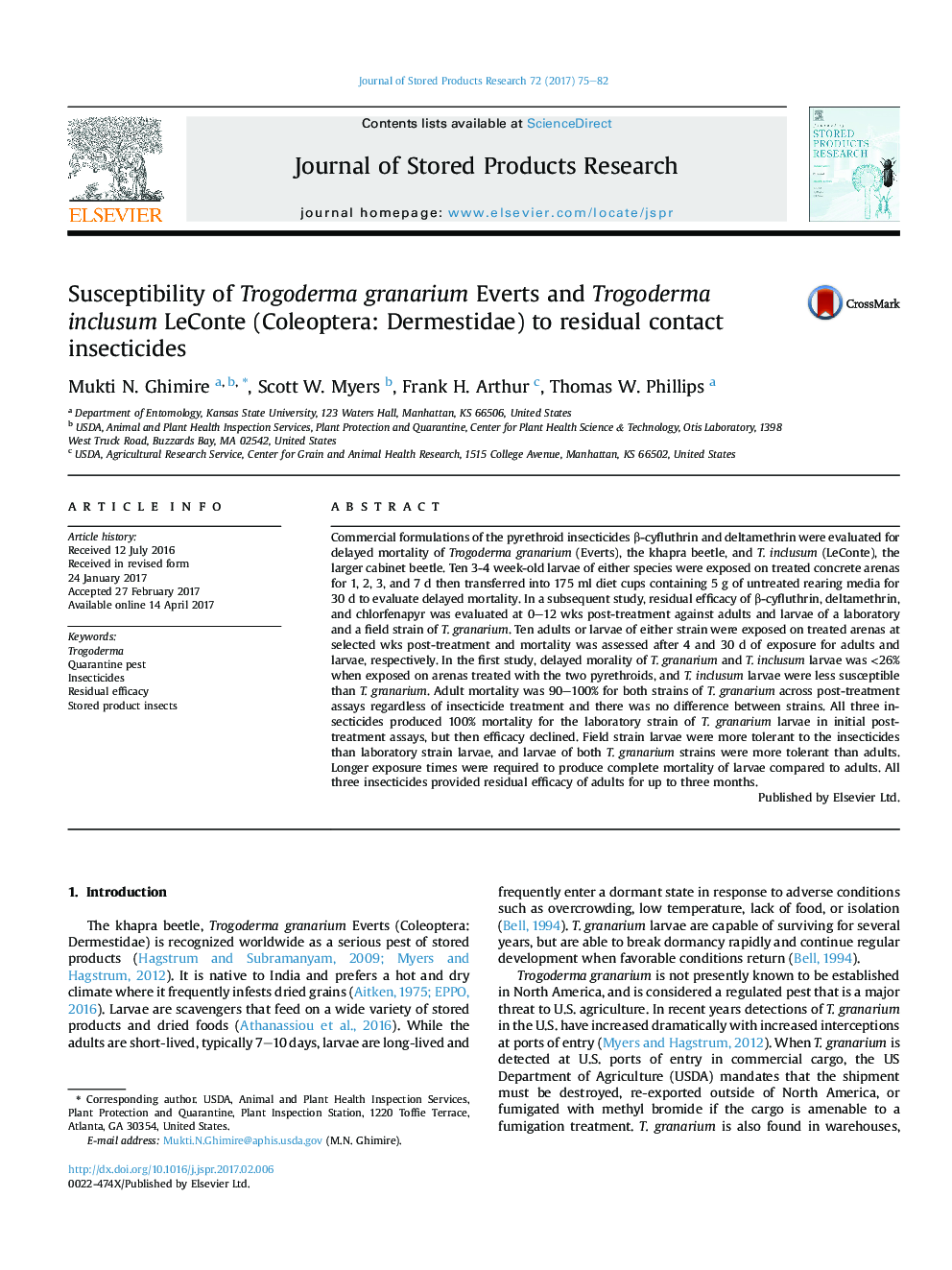| Article ID | Journal | Published Year | Pages | File Type |
|---|---|---|---|---|
| 5762563 | Journal of Stored Products Research | 2017 | 8 Pages |
Abstract
Commercial formulations of the pyrethroid insecticides β-cyfluthrin and deltamethrin were evaluated for delayed mortality of Trogoderma granarium (Everts), the khapra beetle, and T. inclusum (LeConte), the larger cabinet beetle. Ten 3-4 week-old larvae of either species were exposed on treated concrete arenas for 1, 2, 3, and 7 d then transferred into 175 ml diet cups containing 5 g of untreated rearing media for 30 d to evaluate delayed mortality. In a subsequent study, residual efficacy of β-cyfluthrin, deltamethrin, and chlorfenapyr was evaluated at 0-12 wks post-treatment against adults and larvae of a laboratory and a field strain of T. granarium. Ten adults or larvae of either strain were exposed on treated arenas at selected wks post-treatment and mortality was assessed after 4 and 30 d of exposure for adults and larvae, respectively. In the first study, delayed morality of T. granarium and T. inclusum larvae was <26% when exposed on arenas treated with the two pyrethroids, and T. inclusum larvae were less susceptible than T. granarium. Adult mortality was 90-100% for both strains of T. granarium across post-treatment assays regardless of insecticide treatment and there was no difference between strains. All three insecticides produced 100% mortality for the laboratory strain of T. granarium larvae in initial post-treatment assays, but then efficacy declined. Field strain larvae were more tolerant to the insecticides than laboratory strain larvae, and larvae of both T. granarium strains were more tolerant than adults. Longer exposure times were required to produce complete mortality of larvae compared to adults. All three insecticides provided residual efficacy of adults for up to three months.
Related Topics
Life Sciences
Agricultural and Biological Sciences
Agronomy and Crop Science
Authors
Mukti N. Ghimire, Scott W. Myers, Frank H. Arthur, Thomas W. Phillips,
